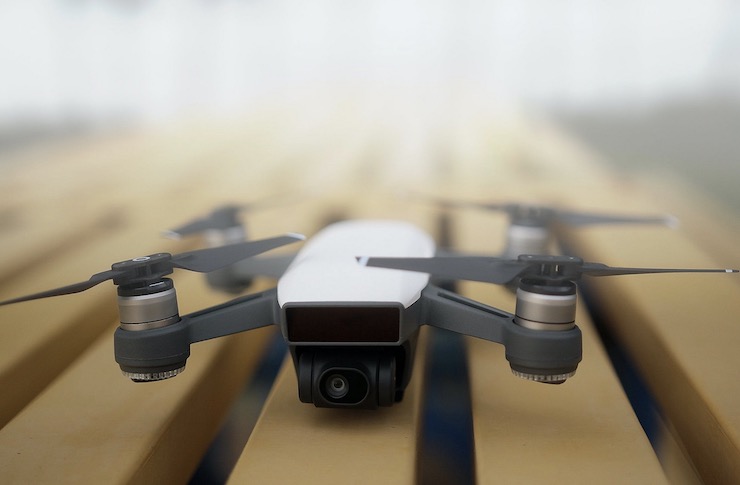
Four American drone companies have applied to the Federal Aviation Administration (FAA) for regulatory waivers that will allow the firms to fly Beyond Visual Line of Sight (BVLOS) operations on a continuous basis across the United States.
To date, the FAA, bowing to safety concerns, has heavily restricted such operations, often requiring drone companies to fly in small, sparsely populated geographic areas while also insisting on ongoing visual monitoring by safety observers who in some cases, also oversee the package deliveries to their final destination.
Drone companies have long complained that these onerous restrictions make it impossible for them to scale their operations to ensure profitability. Moreover, the additional safety observation on delivery flights has made it impossible for major retailers like Amazon and Walmart to fulfill their promise to customers to deliver their ordered goods promptly – usually within an hour or less.
In fact, only a tiny number of Walmart and Amazon customers have requested drone delivery to date, company records show.
Neither Walmart nor Amazon were among the four firms requesting BVLOS waivers from the FAA. Two drone delivery companies, Silicon-Valley based Zipline and UPS Flight Forward, top the list which also includes the aerial data collection company Phoenix Air Unmanned and uAvionix, which provides highly sophisticated avionics technology to other companies, including drone firms.
All four companies have strong safety track records established through their past performance in the field – in some cases, overseas. Zipline, for example, has been delivering emergency medical supplies to Rwanda and several other African nations since 2016 and with FAA approval, recently expanded its operations to several US locales, but under tighter safety restrictions. Phoenix Unmanned has already flown more than 6,000 missions to inspect electricity grids in remote areas, earning a special global safety certificate in the process.
However, with new and broader FAA waivers, all four companies could fly over roads and closer to heavily populated areas to make deliveries or conduct aerial surveillance without the need for ongoing monitoring and supervision
Pressure has been growing on the FAA since a special agency advisory rule-making committee published its final report on the need for loosened FAA restrictions on BVLOS operations, especially for aerial package and cargo delivery flights in heavily populated areas. In addition, powerful voices in Congress, under pressure from the drone industry, have criticized the FAA’s foot-dragging on new BVLOS regulations, citing the need for American companies to maintain their competitiveness with countries in Asia and Europe where national aviation regulators have already loosened past restrictions on BVLOS drone flights
In keeping with agency practice, the FAA has set a 20 days period within which drone industry stakeholders and members of the public can comment on the BVLOS requests. While most industry stakeholders will strongly support the move, opposition may come from citizens that feel that package drone flights are intrusive, noisy and potentially risky to local residents.
Industry observers say the FAA has various options for responding to the drone company waiver requests. One is to allow the remotely-piloted drones to fly at much longer distances in numerous jurisdictions without on the ground-safety and delivery surveillance. A more expansive option is to allow for autonomous drone flying, without the need for remote-piloting, but with visual observation and monitoring from a central control room.
Yet another option – which some states like Florida are beginning to entertain – is to allow for a single remote controller to direct an entire fleet of drones, perhaps in service to several companies and their customers concurrently. That would make drone package delivery operations more “scalable,” industry observers say
“The FAA will review and consider all public comments received,” an agency spokesperson said last month. .“Any final approvals will include safety mitigations, specific conditions and limitations, and data-reporting requirements that will allow the FAA to analyze these operations.”
Most observers expect the FAA to move slowly, possibly tailoring its new regulations to each company’s needs and demonstrated capabilities. However, the FAA is likely to lift the current requirement for case-by-case approvals of BVLOS waivers, instead granting most of the requesting companies requesting some kind of standing waiver that will allow them to plan and program their flights on a wider scale, with fewer operational restrictions.
Not much is actually known about the specifics of the four waiver requests. Phoenix Unmanned, for example, wants standing BVLOS authority to conduct drone inspections at all power stations and electricity grids operated by the U.S Department of Energy nationwide. There is a strong precedent for this request: The FAA has already granted BVLOS waivers to two other drone companies – Percepto and Skydio – to expand their infrastructure inspections to multiple sites. But these only apply to privately-owned sites in selected US states – not to public infrastructure nationwide.
More details on the specifics of the waiver requests by the other three companies will likely emerge once the public comment period ends later this month.
|